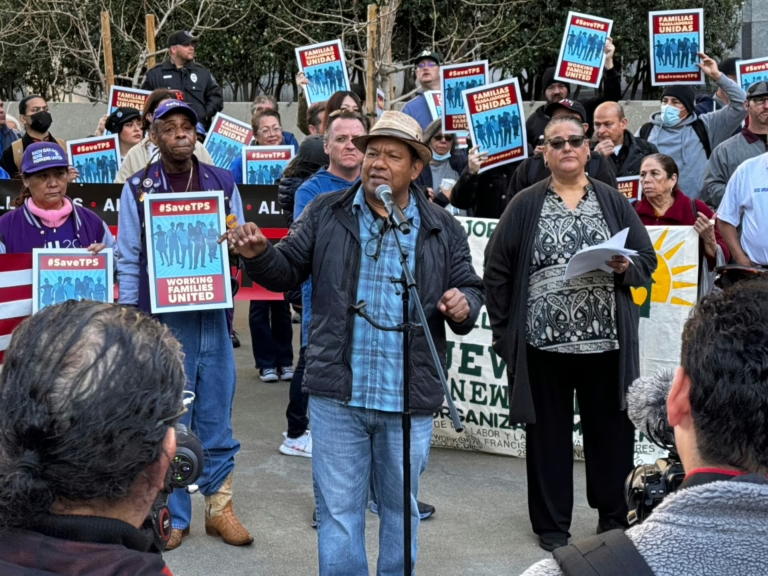The U.S. Supreme Court has once again enabled the Trump administration to proceed with ending a temporary legal safeguard for hundreds of thousands of Venezuelan migrants residing in the United States.
On Friday, the Court’s conservative justices approved the administration’s request to pause a lower court ruling that found Homeland Security Secretary Kristi Noem lacked the authority to terminate the Temporary Protected Status (TPS) granted to Venezuelan migrants during the Biden administration. This stay will remain in effect while ongoing litigation continues.
Earlier this year, in May, the Supreme Court had already sided with the administration by lifting a preliminary injunction issued by San Francisco-based District Judge Edward Chen, who had initially blocked the termination of TPS.
In their brief, unsigned order, the conservative majority stated, “The same result that we reached in May is appropriate here.”
Attorneys representing the migrants informed the Court that since the justices’ initial intervention, many individuals have faced job losses, eviction, detention, and deportation.
The Court’s three liberal justices dissented from the decision. Justice Ketanji Brown Jackson criticized the ruling as a misuse of the Court’s emergency docket, emphasizing the detrimental impact of repeated interference in lower court proceedings when people’s lives are at stake.
Judge Chen’s May decision had temporarily blocked the termination of TPS while the case was being litigated. On September 5, he issued a final judgment declaring that Secretary Noem’s attempt to end the program violated federal administrative law.
Chen also condemned Noem’s “discriminatory statements” about Venezuelan migrants, highlighting that she unfairly generalized the alleged criminal behavior of a few individuals to the entire TPS population, labeling such remarks as a “classic form of racism.”
He further noted that Venezuelan TPS recipients tend to have lower crime rates and higher levels of education and workforce participation compared to the general U.S. population.
As a result of Chen’s ruling, over 300,000 Venezuelan TPS holders remain eligible to stay in the U.S. for the time being, despite the administration’s position that their continued presence is “contrary to the national interest.”
Immigration enforcement, both legal and unauthorized, has been a cornerstone of Trump’s agenda for a second presidential term, with efforts to rescind temporary protections for certain migrant groups, thereby increasing the number of potential deportees.
TPS is a humanitarian provision under U.S. law that offers protection from deportation and work authorization to individuals from countries experiencing armed conflict, natural disasters, or other crises.
The Biden administration designated Venezuelans for TPS in 2021 and again in 2023. Just before Trump’s anticipated return to office in January, Biden extended the program through October 2026.
However, Noem, appointed by Trump, revoked that extension and sought to terminate TPS for a subset of Venezuelans covered under the 2023 designation.
The Ninth Circuit Court of Appeals, based in San Francisco, declined to stay Judge Chen’s final ruling, drawing criticism from the administration.
Officials argued that the appellate court’s refusal to halt the ruling amounted to defiance of the Supreme Court’s prior orders in the case.
In its filing to the Supreme Court, the Department of Justice stated, “This case is familiar to the court and involves the increasingly familiar and untenable phenomenon of lower courts disregarding this court’s orders on the emergency docket.”
Recent weeks have seen confusion and frustration among lower courts as they attempt to interpret Supreme Court emergency rulings, which often lack detailed legal explanations.
The Justice Department emphasized, “This court’s orders are binding on litigants and lower courts. Whether those orders span one sentence or many pages, disregarding them-as the lower courts did here-is unacceptable.”
Separately, on May 30, the Supreme Court permitted the administration to revoke “humanitarian parole” status for approximately 532,000 migrants from Venezuela, Cuba, Haiti, and Nicaragua.
Humanitarian parole grants temporary entry into the U.S. for urgent humanitarian reasons or significant public benefit, allowing recipients to live and work legally during their parole period.






















